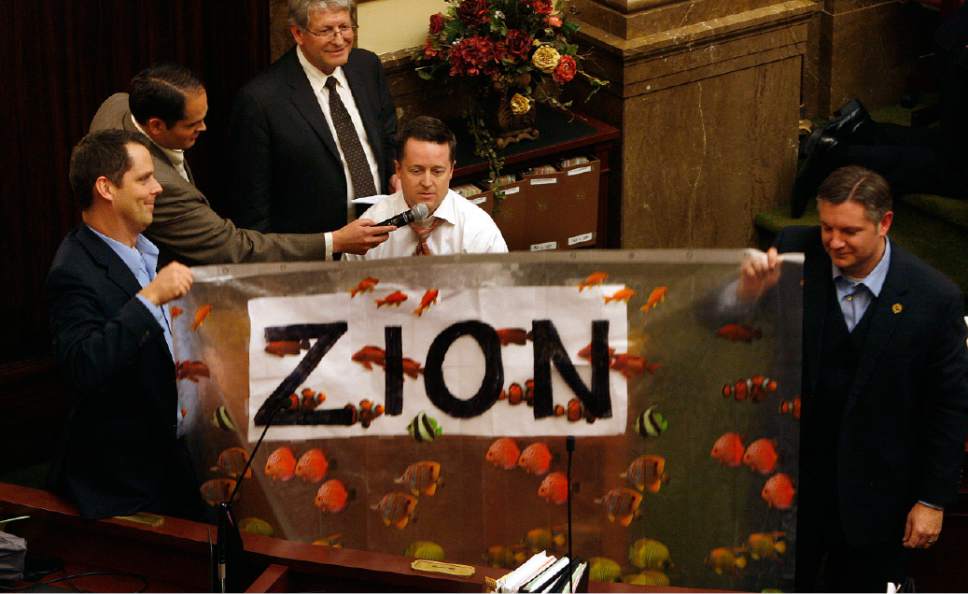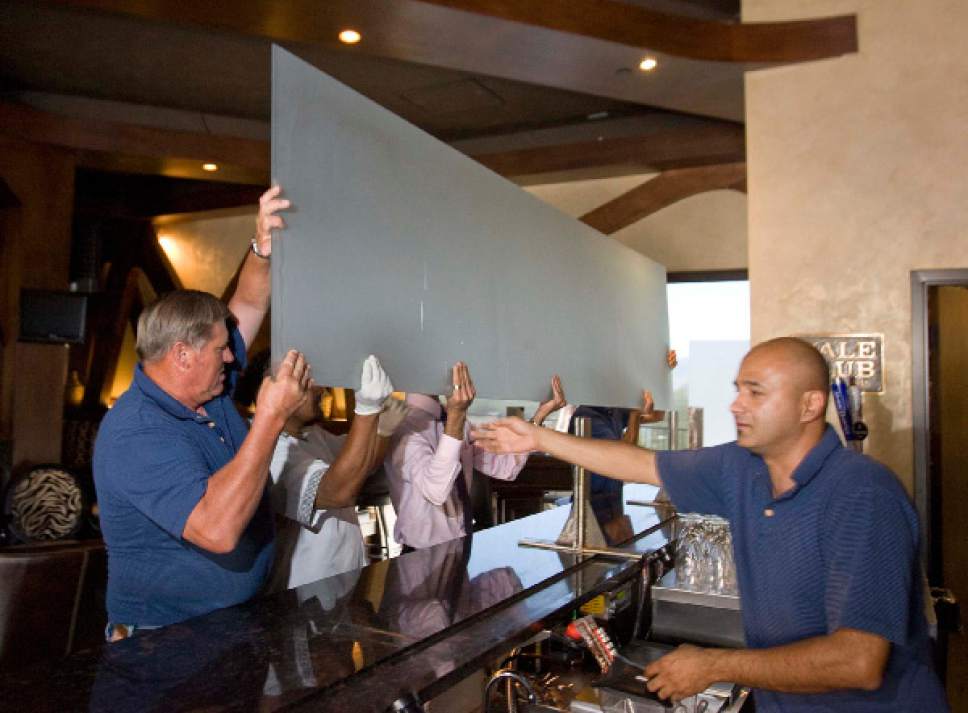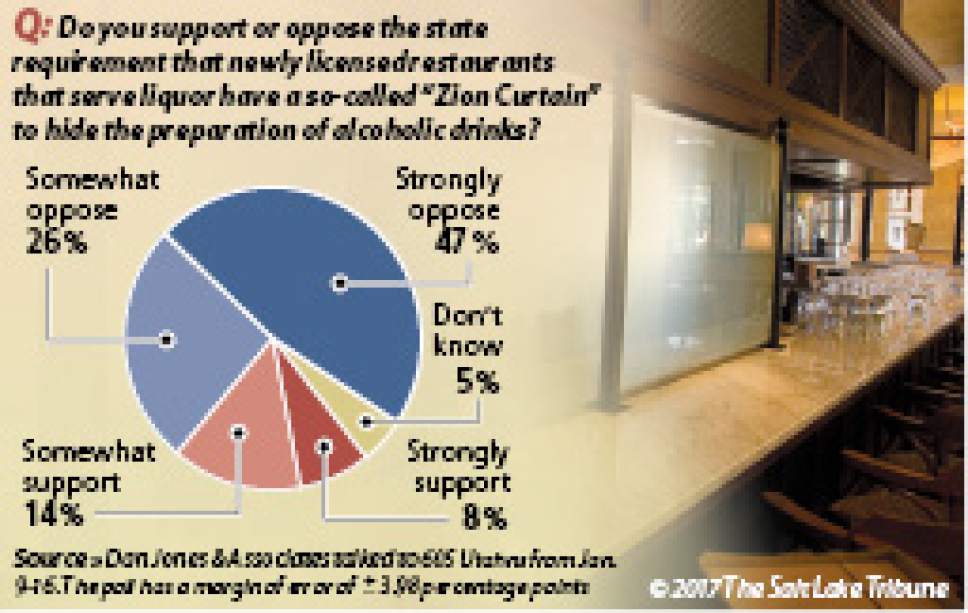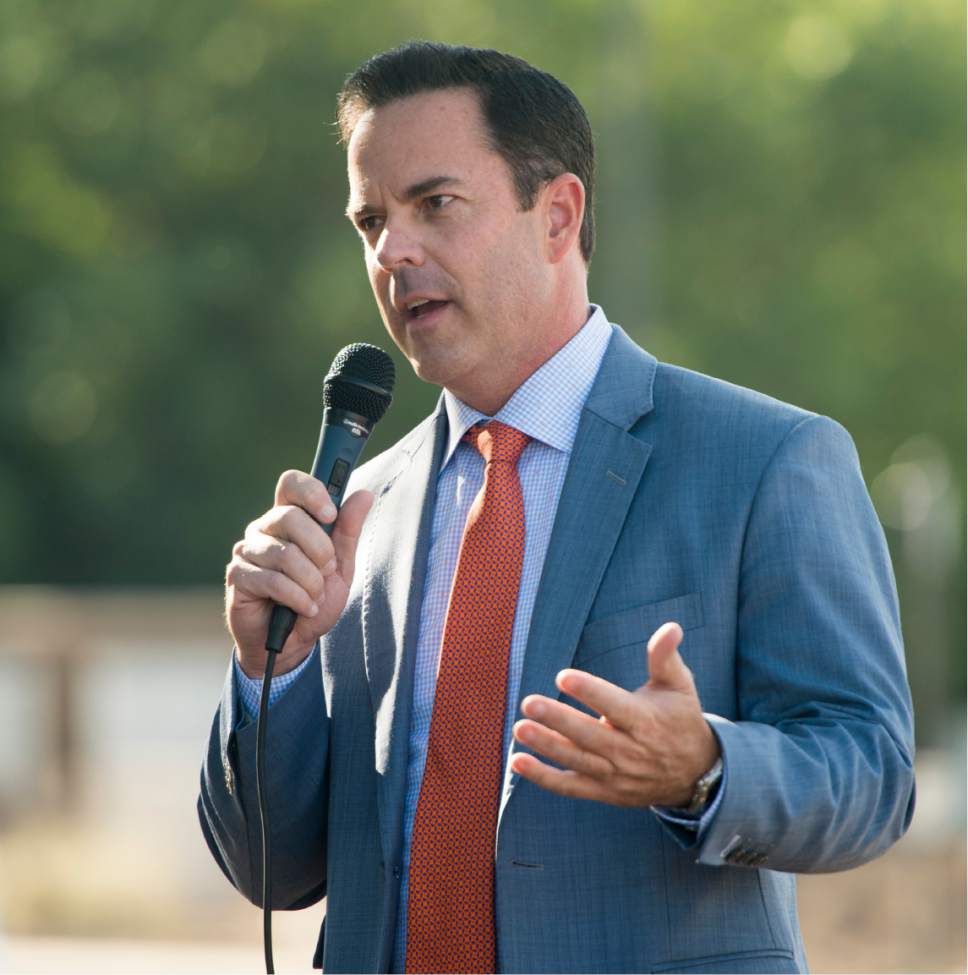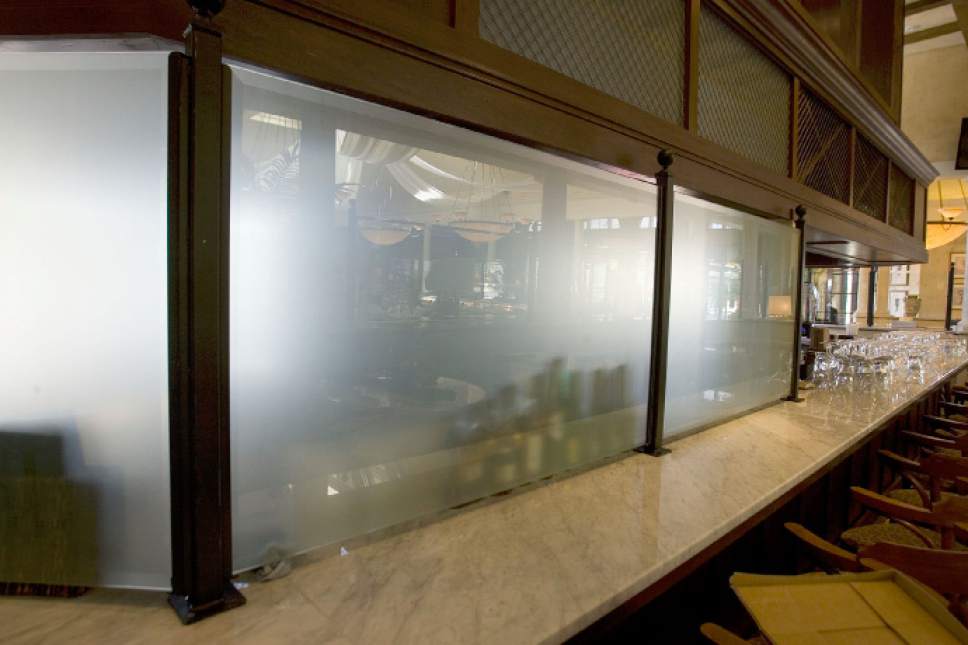This is an archived article that was published on sltrib.com in 2017, and information in the article may be outdated. It is provided only for personal research purposes and may not be reprinted.
The "Zion Curtain" — the 7-foot-tall barrier to prevent restaurant patrons, especially children, from seeing alcoholic drinks being mixed — may soon come tumbling down.
New House Majority Leader Brad Wilson, R-Kaysville, says he plans to introduce a bill next week that would make many updates to Utah's liquor laws. These include tearing down the unpopular, often ridiculed Zion Curtain.
"It's only a small part of the bill. But it seems like that's the one that everyone cares about," Wilson said in an interview. "We've had Zion Curtain bills every year recently. But I expect this one to get serious consideration."
He said that's because it has other provisions designed to help reduce underage drinking and drunken driving.
The bill "will focus on everything from how restaurants operate in terms of verification of age, how they display alcohol, how their servers and operators are trained, what happens in case of a violation. We're addressing all those issues," Wilson said
His push comes after a 14-month review and discussion among stakeholders about whether Utah's liquor laws could be modernized without damaging progress already made.
"We've got the lowest underage-drinking rate in the country, fourth lowest drunk-driving rate, second lowest binge-drinking rate. It seems like our alcohol policy is working fairly well. But we're hearing a lot of complaints from the business community at the same time," he said.
For example, Melva Sine, president of the Utah Restaurant Association, said Tuesday that the Zion Curtain makes restaurant operations more difficult "and created confusion." She added, "It's time for adults to order an adult beverage without any stigma attached."
The industry isn't the only source of opposition to the unique law.
A new Salt Lake Tribune-Hinckley Institute of Politics poll says 73 percent of residents oppose the Zion Curtain. Just 22 percent support it.
The opposition crosses partisan, gender, even religious lines. A solid 63 percent of self-described "very active" Mormons oppose the Zion Curtain and the numbers just go up from there — among somewhat active Mormons, those of other faiths and people not identifying a religious affiliation.
The poll, conducted Jan. 9-16 by Dan Jones & Associates, surveyed 605 registered voters and has a margin of error of 3.98 percent.
Wilson said his bill proposes that as the Zion Curtain comes down, children would be banned from sitting at bars in restaurants or within about 10 feet or so of them in most cases.
A big change is that it would increase liquor prices in Utah to pay for new training, including helping servers avoid overconsumption, and for enhanced enforcement of drunken driving or underage drinking laws.
Wilson said he is still working through the numbers, but expects a 1 or 2 percentage bump to the 86 percent markup now on alcohol sold at state liquor stores.
He said the bill will retain a requirement that restaurant patrons must verbally state an intent to order food before being served alcohol. Also, 70 percent of a restaurant's sales must be in food.
"We're also simplifying licenses," he said. Instead of many now used for bars, clubs, dining clubs and restaurants, "We will have a bar license, or a restaurant license."
In recent years, legislation to removed the Zion Curtain repeatedly failed after the LDS Church had opposed any changes in liquor laws, saying current laws have worked well. Wilson said he has talked numerous times to church leaders, and believes they will support his bill.
"Everyone has believed that the LDS Church was fixated on the Zion Curtain and insisted that it stay," he said. But he says he finds it felt that "until we know we have something better, let's leave that there." He adds he feels he has found something better.
"I would say they feel like we are making good strides in reducing underage drinking and drunk driving through these efforts, and that is what they care about," he said.
LDS spokesman Eric Hawkins issued a statement Tuesday saying, "Any discussion of change in Utah's alcohol policy should require clear evidence that the proposed changes will not increase these kinds of negative societal costs. Particular policy elements are means to this end, and should be secondary to preserving the wellbeing of individuals and families in our communities."
He added, "The Church has historically worked to support legislation that advances the safety and wellbeing of all state residents, particularly minors, and to avoid the societal costs and harms that often result from alcohol excess consumption and abuse, underage drinking, and DUIs."
The bill will be co-sponsored by Sen. Jerry Stevenson, R-Layton. The senator said the legislation is still a work in process, "and we have a ways to go." Stevenson said he and Wilson are still working through concerns of stakeholders.
Wilson said, "I don't think everyone received all of what they wanted."


